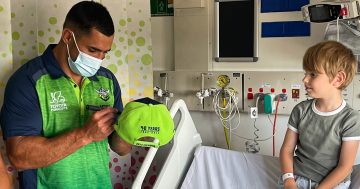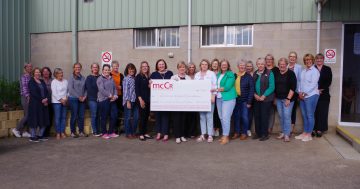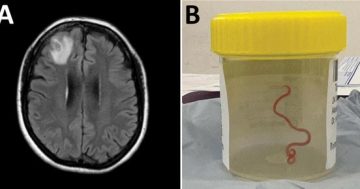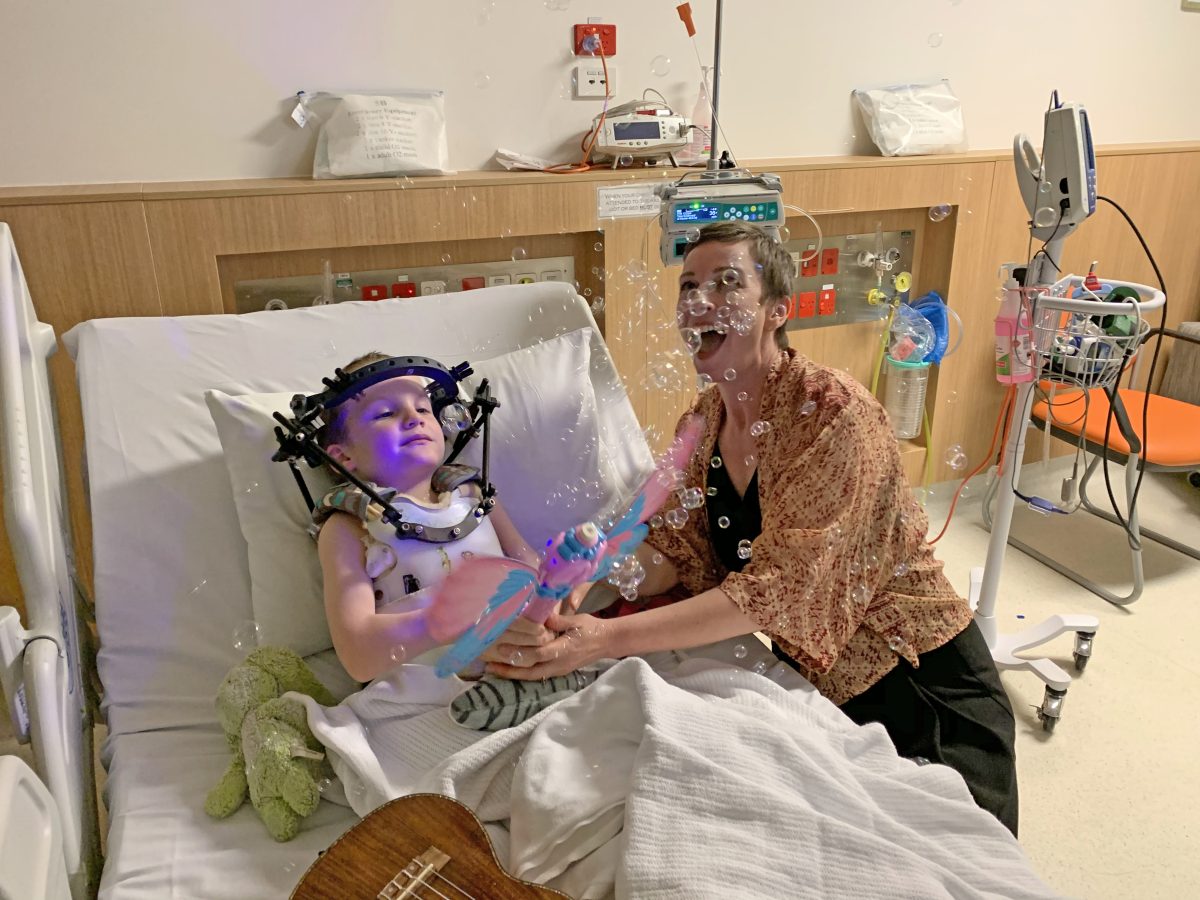
Play therapist Larah Nicholls with paediatric patient Kalten. Photos: Canberra Hospital Foundation.
Larah Nicholls is late to our interview, but she has a good excuse.
As a play therapist at Canberra Hospital, she doesn’t set appointments with her young clients – she goes where she’s needed, when she’s needed. It’s ad hoc, it’s urgent and she loves the heck out of it.
She’s just come from distracting a distressed 18-month-old who needed blood taken from a cannula and wouldn’t let medical practitioners approach.
“I had never met the child before so I had to build rapport in moments and find things that would interest her,” she says.
“In that situation I used music. I played the ukulele, sang Twinkle, Twinkle, Little Star, then moved on to blowing bubbles. Then I used dad as a role-play model and, using a straw and paper towel, I fashioned a cannula and pretended to take blood from him while she watched.
“By the end she was happy, using the bubble machine to blow bubbles on my face.”
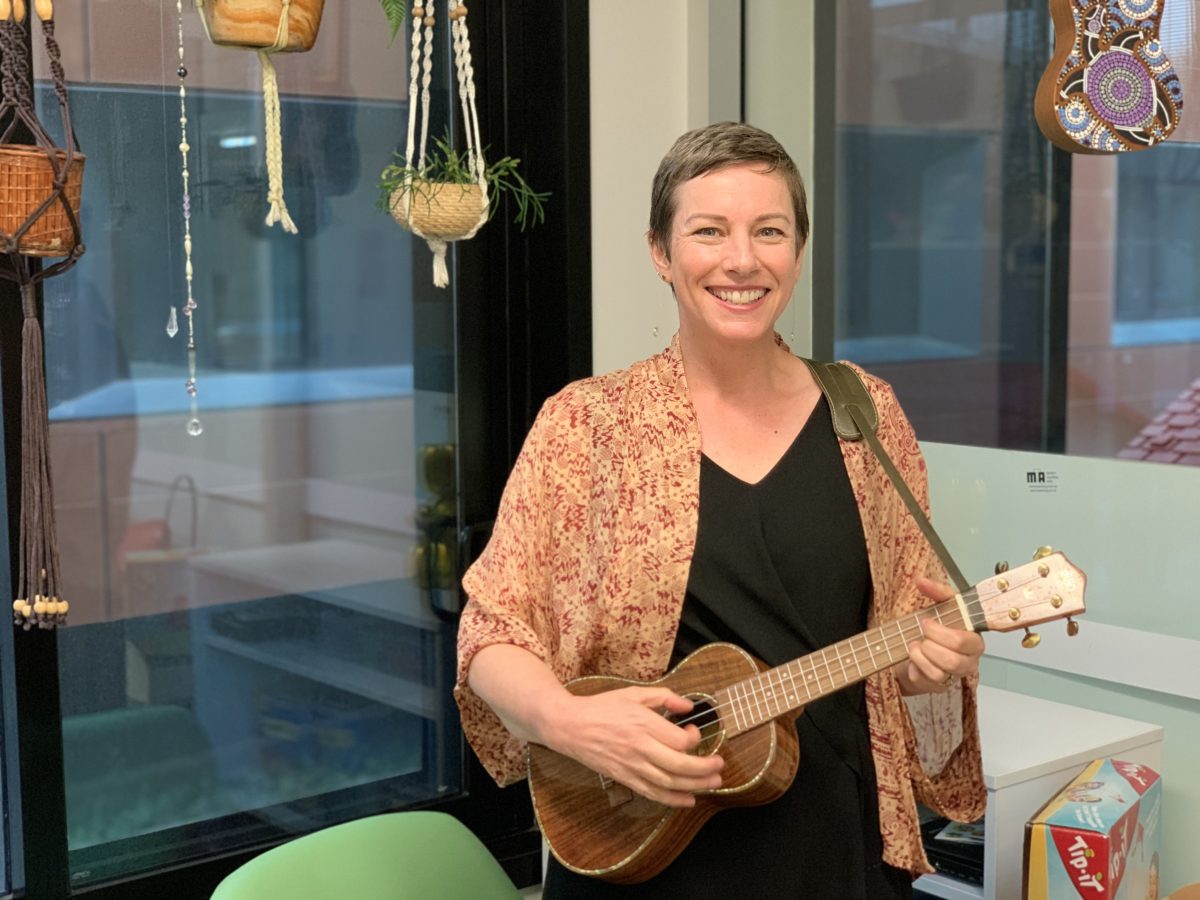
Larah has diverse diversionary tactics, skills, games and therapeutic toys in her arsenal.
Larah has a solid repertoire of skills, games, therapeutic toys and finely tuned instincts that she has honed over 15 years working in the hospital. With them she creates playful experiences and activities to improve the hospital experience and minimise medical trauma for any inpatients, outpatients and day stays who need it.
As the service is available to children ranging from 0 to 16 years old, diverse equipment is needed.
While the program is funded by Allied Health, thanks to the Canberra Hospital Foundation and community fundraising initiatives like Give Me 5, the broad range of equipment, games and toys includes some “above and beyond” items. These include a Medi-Zen interactive robot and the ever-popular Smiley Scopes – a virtual reality program that focuses children’s attention away from invasive procedures they must undergo.
“It’s a diversional tactic but also for relaxation,” Larah explains.
“It can be used to centre their breathing and calm them before, during and after any kind of treatment.”
In a way, Larah is like a one-person orchestra, but rather than carrying all the tools of her craft on her back, she has them stashed in her head or around the hospital.
“I’m never too far from a pot of playdough, a bubble machine or teddy bear I can enact a pretend procedure on,” she says.
“I have Duplo and a tiny MRI machine built out of Lego and all sorts of therapeutic toys hidden all over the hospital.
“We play therapists also have very creative minds because we have to be able to match children’s minds.”
The program serves to reduce stress and anxiety, which has been shown to result in quicker recoveries and shorter hospital stays.
“Anything we can do to lessen children’s anxiety to improve their medical experience will result in better outcomes for them,” Larah says.
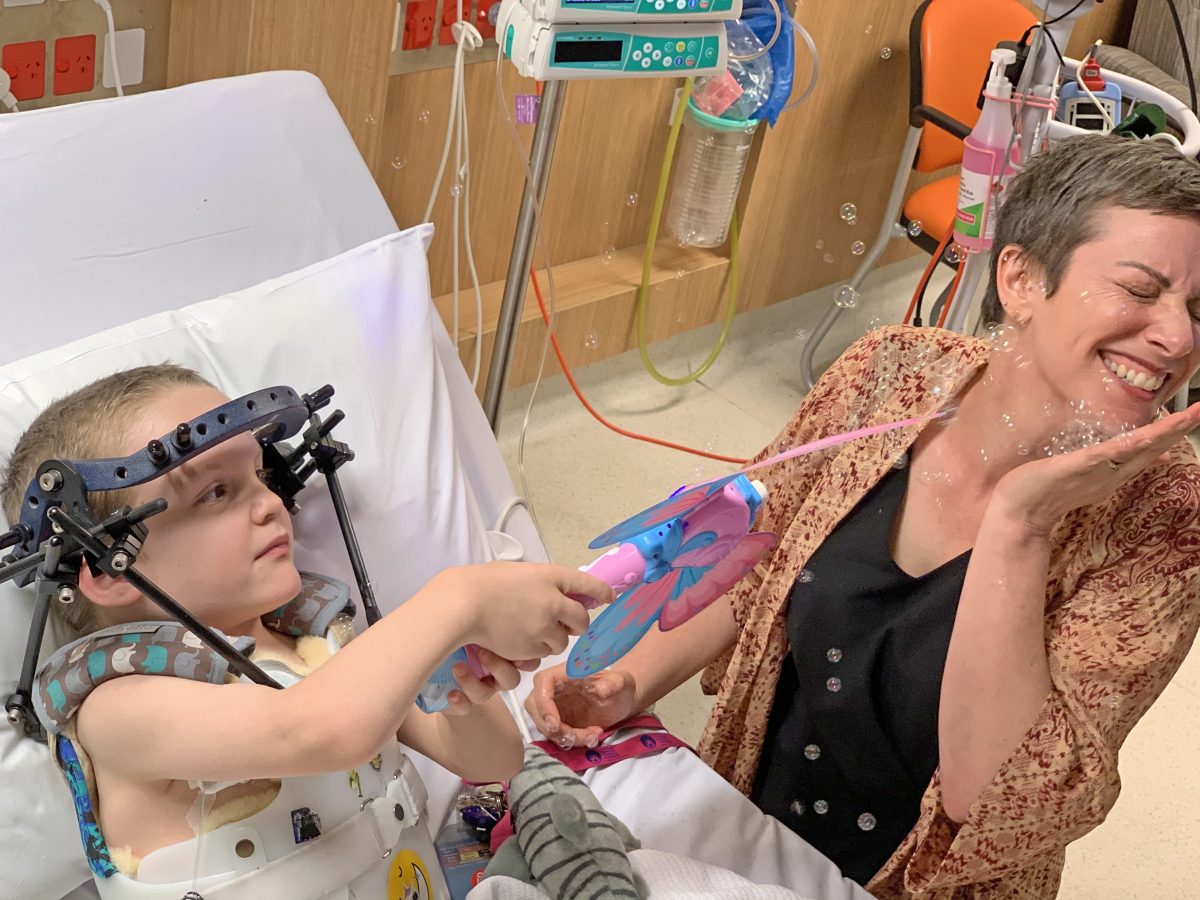
Larah Nicholls with paediatric patient, Kalten.
Sarah* can attest to that. Her daughter has known the benefit of play therapy since age four, having spent much of her life as a patient at Centenary Hospital for Women & Children.
“She has chronic medical issues and, through multiple significant invasive surgeries and hospitalisations, was medically traumatised to the point that if we so much as drove by the hospital, she’d have hysterics in the car,” Sarah says.
“We would then have meltdowns whenever she did have to go in, which was probably about once a month.
“During one hospital admission, the doctor came in with what felt like a squad of practitioners and she was terrified and distraught.”
Following some strong advocation from Sarah, Larah came in and, following multiple play therapy sessions, things have turned around for the now nine-year-old.
“She’s still anxious because it’s so deep-seated, but we can talk her through it now. We can tell her, ‘We’re going to see Larah and have a play’ and she gets excited about that,” Sarah says.
“Without it, my life would be much harder, her life would be harder. I wish we’d had it sooner. It should be routinely offered to any child coming regularly to hospital.”
Earlier this year, additional funds from the charity Curing Homesickness were raised through Canberra Hospital Foundation to extend the service into the Palliative Play Therapy Program.
This supports infants, children and young people receiving palliative care, and their families and siblings, to ensure that every child with a life-limiting illness, regardless of their ability or ailment, can experience joy and connection through play.
Available to inpatients and outpatients virtually and in the home, tailored programs improve psychological wellbeing and the ability to communicate, reduce stress and anxiety, and enrich relationships.
To donate before the financial year’s end, visit the Canberra Hospital Foundation and help achieve its mission. All donations over $2 are tax deductible.
*Anonymised for privacy.
Original Article published by Dione David on Riotact.







